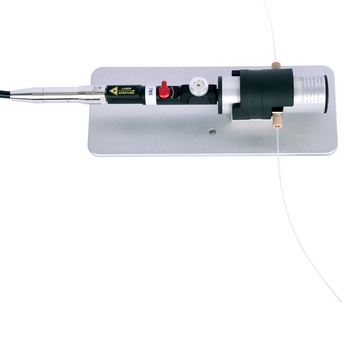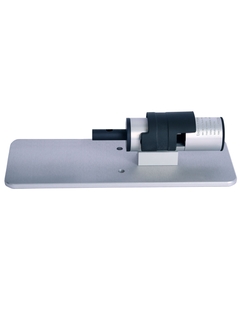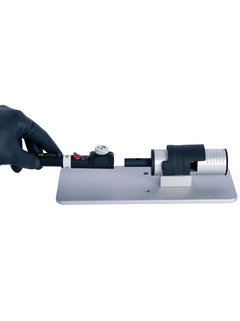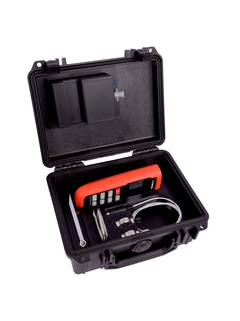-
Measuring principle
Raman Spectroscopy
-
Temperature
Micro flow bench:
Operating:
0 to 40 °C / 32 to 104 °F
Storage:
-10 to 50 °C / 14 to 122 °F
Micro flow cell:
Operating:
0 to 40 °C / 32 to 104 °F
Storage:
-20 to 60 °C / -4 to 140 °F -
Relative humidity
Micro flow cell:
Storage:
< 90 % Non-Condensing -
Unit dimensions (width x height x depth)
Micro flow bench:
254 x 102 x 66 mm
10.0 x 4.0 x 2.6 inch
Micro flow cell:
46 x 25 x 11 mm
1.8 x 1.0 x 0.4 inch -
Sampling probe compatibility
Raman Rxn-10 in tandem
-
Sample interface
Micro flow bench:
Micro flow cell -
Pressure
Micro flow cell:
Max pressure: 4.8 barg / 70 psig -
Wetted materials
Micro flow cell:
Body: 316L stainless steel
Window: Proprietary material, optimized for bioprocesses
Surface finish: Ra 15 with Electropolish to ASME BPE SF4 finish
Adhesive: USP Class VI and ISO 10993 compatible -
Sterilization method
Micro flow cell:
CIP/SIP -
Process connection
Micro flow cell:
5/16-24 flat bottom ferrules
Up to 3/16 inch OD tubing -
Fluid Path Thickness
Micro flow bench:
1.0 to 5.0 mm (flow cell driven)
Micro flow cell:
2.5 mm -
Flow Conditions (Flowcell)
Micro flow cell:
Laminar -
Flow Cell Maximum Volumetric Flowrate (mL/min)
Micro flow cell:
15 -
Amplification Available or Amplification Factor?
Micro flow bench:
Yes
> 3.0 (TYP)
> 2.5 (MIN)
Field of application
The Raman flow assembly brings in-line Raman spectroscopy to downstream bioprocessing. Comprised of a flow cell and associated flow bench connected to an Rxn-10 probe, this system meets the speed demands of downstream by optimizing Raman collection for low-turbidity, low volume samples. Ideally suited for development-scale flow rates, the Raman flow assembly provides real-time monitoring, rapid process optimization, and process control for chromatography and other downstream unit operations.
Downstream: aggregation, protein crystallization, formula stability, product CQA, protein concentration, buffer excipients Midstream: analyte monitoring in permeate
Benefits
Brings Raman-based process insights and control to downstream bioprocessing unit operations Achieves lower limits of detection through enhancement of the Raman signal Provides continuous, real-time measurements with high sensitivity for development-scale flow rates Easily connects to an Rxn-10 probe paired with a Raman Rxn embedded analyzer, and ensures transferability when used with the Raman flow assembly calibration and verification kitWith the flow bench, provides flexibility to swap out flow cells any time without impacting your process or sterility





